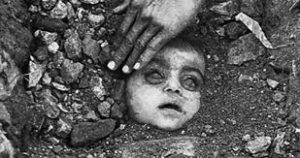Our beliefs close us off from much otherwise quite-available knowledge concerning man’s and woman’s psychology — knowledge that would serve to answer many questions usually asked about the reasons for suffering. Other questions, it is true, are more difficult to answer. Men and women are born, however, with curiosity about all sensations, and about all possible life experiences. They are thirsty for experience of all kinds. Their curiosity is not limited to the pretty or the mundane.
Men and women are born with a desire to push beyond the limits : to “explore where no man or woman has ever gone before” — a bastard version of the introduction [to a famous television program], I believe men and women are born with a sense of drama, a need of excitement. Life itself is excitement. The quietest mood rides the thrust of spectacular molecular activity.
We forget many of our quite natural inclinations, feelings, and inner fantasies as we mature into adults, because they do not fit into the picture of the kind of people, or experience, or species we have been taught to believe we are. As a result, many of the events of our lives that are the natural extensions of those feelings appear alien, against our deepest wishes, or thrust upon us, either by outside agencies or by a mischievous subconscious.
The thoughts of children give excellent clues as to mankind’s and womankind’s nature, but many adults do not remember any childhood thoughts except those that fit, or seem to fit, in with their beliefs about childhood.
Children play at getting killed. They try to imagine what death is like. They imagine what it would be like to fall from a wall like Humpty-Dumpty, or to break their necks. They imagine tragic roles with as much creative abandon as they imagine roles of which adults might approve. They are often quite aware of “willing” themselves sick to get out of difficult situations — and of willing themselves well again.
As i said, there are all ranges of suffering. In times past in particular, though the custom is not dead, men and women purged themselves or otherwise deprived themselves. They suffered, in other words, for religion’s sake. It was not just that they believed suffering was good for the soul — a statement which can or cannot be true, incidentally, and I will go into that later — but they understood something else: The body will only take so much suffering when it releases consciousness. So they hoped to achieve religious ecstasy.
Religious ecstasy does not need physical suffering as a stimulus, and such a means in the overall will work against religious understanding. Those episodes, however, represent one of the ways in which man and woman can actively seek suffering as a means to another end, and it is beside the point to say that such activity is not natural, since it exists within nature’s framework.
Discipline is a form of applied suffering, as discipline is usually used. People are not taught to understand the great dimensions of their own capacity for experience. It is natural for a child to be curious about suffering, to want to know what it is, to see it — and by doing so he or she learns to avoid the suffering he or she does not want, to help others avoid suffering that they do not want, and to understand, more importantly, the gradations of emotion and sensation that are his and her heritage. As an adult he or she will not inflict pain upon others if he or she understands this, for he or she will allow himself or herself to feel the validity of his or her own emotions.
If we deny ourselves the direct experience of our own emotions, but muffle them, say, through too-strict discipline, then we can hurt others much more easily, for we project our deadened emotional state upon them — as in the Nazi war camps, men and women followed orders, torturing other people — and we do that first of all by deadening our own sensitivity to pain, and by repressing our emotions.
Man’s and woman’s vulnerability to pain helps sympathize with others, and therefore helps him or her to more actively alleviate whatever unnecessary causes of pain exist in society.
Each person’s experience of a painful nature is also registered on the part of what we will call the world’s mind. Each, say, failure, or disappointment, or unresolved problem that results in suffering, becomes a part of the world’s experience: This way or that way does not work, or this way or that way has been tried, with poor results. So in that way even weaknesses of failures of suffering are resolved, or rather redeemed as adjustments are made in the light of those data.
In that regard, each person lives his or her life privately, and yet for all of humanity. Each person tries out new challenges, new circumstances, new achievements from a unique viewpoint, for himself or herself, and for the entire mass of humanity as well.
The idea that in their play children “try to imagine what death is like” certainly adds an intuitive dimension to my own activities as a child. “Cowboys and Indians” was our gang’s favorite game, and we roamed the nearby fields all of us made believe we killed our enemies and/ or were killed ourselves. We had great fun, and used to play such games to the point of exhaustion.
Children “are often quite aware of willing themselves sick to get out of difficult situations.” I remember very well doing that on certain occasions — usually to avoid some school activity — and that even then I was surprised because my parents didn’t catch on to what I was up to. ( Getting well after the danger period had passed was no problem!)







